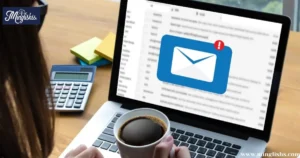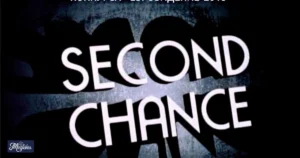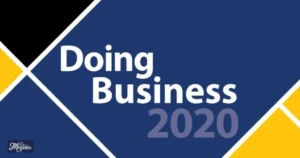“Looking for alternative ways to say ‘Please provide’ you can use to communicate more effectively!”
Effective communication is crucial in any context, whether you’re sending an email, making a request in a meeting, or simply asking for help from someone. One of the most common phrases used to ask for something is “please provide.” However, there are many other ways to phrase this request that can sound more polite, formal, or even casual, depending on the situation. These variations can help make your language sound more professional or simply offer variety to your speech and writing. If you’re looking to diversify your vocabulary, you’re in the right place.
The ability to rephrase common phrases can make your communication style more versatile. Whether you need alternatives for a workplace setting, customer service interactions, or even a casual conversation with friends, having a range of options available is always helpful. In this blog, you’ll find 35 different ways to say “please provide” with scenarios, subject explanations, and additional tips on when and how to use them.
Learning how to effectively use these alternatives will not only make you sound more engaging but also help you communicate in a way that suits your audience and the tone of the conversation. By the end of this article, you’ll have a solid list of phrases to confidently incorporate into your daily vocabulary.
1. Kindly Share
Scenario:
When requesting information or documents, using “kindly share” sounds polite and professional. For example, during a meeting, you might say, “John, kindly share the report on the project timeline.”
Explanation:
“Kindly share” is often used in formal communication, particularly when addressing colleagues or clients. It conveys respect and professionalism.
Additional Tip:
This phrase is ideal for written requests, such as in emails or formal letters, to sound polite but still direct.
2. Would You Mind Providing
Scenario:
“Would you mind providing” is a great way to soften your request. In a casual business meeting, you might say, “Sarah, would you mind providing the updates on the new project?”
Explanation:
This phrase is slightly more informal than “kindly provide,” but it’s still polite and professional. It’s often used in situations where you’re asking for something from someone without demanding it outright.
Additional Tip:
Using “Would you mind” also makes it easier for the recipient to decline the request if they need to.
3. Could You Kindly Furnish
Scenario:
In an email to a supplier, you could say, “Could you kindly furnish the details of the upcoming shipment?”
Explanation:
“Could you kindly furnish” is a formal alternative that adds a tone of courtesy and professionalism, suitable for business correspondence.
Additional Tip:
This phrase is commonly used in legal, academic, or formal business settings.
4. Would You Be Able to Provide
Scenario:
In a professional context, you could say, “Would you be able to provide the marketing materials for next week’s event?”
Explanation:
This phrase sounds both polite and slightly less direct, which can be useful if you’re unsure of the other person’s availability or willingness.
Additional Tip:
It’s ideal to use this in situations where you’re making a polite request and want to leave room for the person to say no if needed.
5. Please Send Over

Scenario:
When communicating informally, you might say, “Could you please send over the presentation by this afternoon?”
Explanation:
“Please send over” is casual but still polite. It’s suitable for emails and messages, especially when you’re asking someone to forward something quickly.
Additional Tip:
This phrase works well when you’re requesting items that can be easily sent, such as documents, files, or links.
6. Kindly Deliver
Scenario:
You can use this when speaking to someone in a more formal tone, like, “Kindly deliver the updated contract for review.”
Explanation:
“Kindly deliver” is a great choice when you want to sound professional and polite. It adds a formal flair to your request.
Additional Tip:
This phrase is commonly used in client relationships or when dealing with contracts and services.
7. Could You Share
Scenario:
In a quick conversation, you might ask, “Could you share the details of the meeting?”
Explanation:
“Could you share” is a straightforward, polite alternative to “please provide.” It’s a bit more casual and suitable for informal workplace environments.
Additional Tip:
This phrase is best used in casual conversations or emails with colleagues you have a familiar relationship with.
8. Would It Be Possible to Provide
Scenario:
For a more formal request, you could say, “Would it be possible to provide the documents by Friday?”
Explanation:
This phrase is often used to soften the request further, making it sound even more polite and considerate.
Additional Tip:
It’s appropriate when you’re making requests to higher-ups or clients, as it shows respect and an understanding of their schedule.
9. Please Supply
Scenario:
If you’re ordering supplies, you could say, “Please supply the necessary equipment for the presentation tomorrow.”
Explanation:
“Please supply” is a straightforward, polite way to ask for something in both formal and informal contexts. It’s often used in supply chains, retail, or logistical settings.
Additional Tip:
This phrase is perfect for specific requests, particularly when asking for tangible items or materials.
10. Kindly Offer
Scenario:
You might use this phrase when asking for a proposal, such as, “Kindly offer your suggestions on the new marketing strategy.”
Explanation:
“Kindly offer” sounds polite and formal, making it a good option for professional settings where you want to sound courteous and respectful.
Additional Tip:
This phrase works well in situations where you’re requesting advice, opinions, or proposals.
11. Would You Be So Kind As to Provide
Scenario:
For formal emails, you might ask, “Would you be so kind as to provide the invoice for last month’s services?”
Explanation:
This expression is very polite and often used in highly formal business environments. It’s a good choice when requesting something from someone you don’t know very well.
Additional Tip:
Use this phrase in professional communications, especially when you’re unsure about the person’s willingness to fulfill your request.
12. Please Make Available
Scenario:
You could say, “Please make the presentation available to the team by the end of the day.”
Explanation:
“Please make available” is a formal alternative used to request that something be provided or made accessible.
Additional Tip:
This phrase is best used when requesting documents or resources that need to be distributed to multiple people.
13. Could You Provide
Scenario:
A simple request like, “Could you provide the monthly performance report by tomorrow?”
Explanation:
“Could you provide” is direct but still polite. It’s a commonly used phrase in emails or verbal requests.
Additional Tip:
This phrase works well in both formal and informal contexts, as it’s polite and to the point.
14. Would You Kindly Supply
Scenario:
In an email to a colleague, you might write, “Would you kindly supply the budget details for the upcoming quarter?”
Explanation:
“Would you kindly supply” is a polite and respectful way to ask for something, often used in formal business communication.
Additional Tip:
Use this phrase when you want to be extra courteous, especially in professional or client-facing situations.
15. Can You Provide
Scenario:
In a team meeting, you might ask, “Can you provide the analysis on customer feedback by the end of the week?”
Explanation:
“Can you provide” is one of the most direct alternatives. It’s polite but gets straight to the point, making it suitable for everyday communication.
Additional Tip:
Use this when you need something quickly and want to keep the tone professional but friendly.
16. Please Forward

Scenario:
You might use it when requesting documents via email, like, “Please forward the updated files to the marketing department.”
Explanation:
“Please forward” is often used when you want someone to send something along or pass it on to someone else.
Additional Tip:
It’s a great option when you’re dealing with communication or file-sharing situations.
17. Would You Mind Sharing
Scenario:
In a conversation, you might ask, “Would you mind sharing the list of attendees for the event?”
Explanation:
This phrase is informal and polite, making it suitable for conversations with colleagues or friends.
Additional Tip:
Using “Would you mind” softens the request, making it easier for the person to decline if they cannot provide the information.
18. Kindly Submit
Scenario:
You might say, “Kindly submit the final report by noon.”
Explanation:
“Kindly submit” is polite and formal, often used when asking for documents, forms, or official submissions.
Additional Tip:
This phrase works best in formal settings like academic or legal submissions, where deadlines are involved.
Other Ways to Say “See You Then”
19. Can You Kindly Provide
Scenario:
You could say, “Can you kindly provide the specifications for the project?”
Explanation:
“Can you kindly provide” combines politeness with directness, making it suitable for professional settings where you need specific information.
Additional Tip:
This phrase is versatile and works well for emails or meetings with colleagues or clients.
20. Please Make Sure to Provide
Scenario:
In a reminder email, you might write, “Please make sure to provide the documents before the deadline.”
Explanation:
“Please make sure to provide” is a way to stress the importance of receiving something within a certain time frame.
Additional Tip:
It works well when you want to emphasize deadlines or the need for timely action.
21. Could You Kindly Share With Us
Scenario:
During a conference call, you might ask, “Could you kindly share with us the details of the new product launch?”
Explanation:
This is a formal and respectful way to ask for information, particularly when addressing a group of people.
Additional Tip:
It’s ideal for formal meetings or group discussions.
22. Would It Be Possible for You to Provide
Scenario:
In a letter, you could ask, “Would it be possible for you to provide the status update by Wednesday?”
Explanation:
This is a polite, formal way to request something, often used in professional settings.
Additional Tip:
It adds a level of politeness and is often used when you’re uncertain of someone’s availability.
23. Can You Send
Scenario:
When you need quick action, you might say, “Can you send the invoice over today?”
Explanation:
“Can you send” is a straightforward and polite way to request the delivery of something.
Additional Tip:
This phrase is particularly effective in casual work settings where quick requests are necessary.
24. Would You Be Willing to Provide
Scenario:
If you’re unsure of the person’s availability, you might ask, “Would you be willing to provide the details for the new project?”
Explanation:
This phrase is polite and indirect, often used when you don’t want to sound too demanding.
Additional Tip:
It’s best used when asking for favors or when the person might need to agree to the request.
25. Please Offer
Scenario:
“Please offer your feedback on the proposal by the end of the day.”
Explanation:
“Please offer” is another polite way to ask for something, especially when you’re seeking an opinion or input.
Additional Tip:
This phrase is great for requesting feedback in informal meetings or casual business contexts.
26. Kindly Pass Along
Scenario:
You could say, “Kindly pass along the meeting notes to the team.”
Explanation:
“Kindly pass along” is another polite phrase to ask for something to be shared, especially in group settings.
Additional Tip:
It’s best used when you need something delivered to a group or multiple recipients.
27. Could You Kindly Offer
Scenario:
In an email to a colleague, you might ask, “Could you kindly offer your thoughts on this proposal?”
Explanation:
“Could you kindly offer” is polite and formal, often used when requesting someone’s opinion or input.
Additional Tip:
Use it when you want to sound respectful, especially in professional settings.
28. Would You Be Kind Enough to Provide
Scenario:
“Would you be kind enough to provide the requested documents by tomorrow?”
Explanation:
This is a very polite, almost formal way to make a request, often used in client communication.
Additional Tip:
It works well when you need to make a polite request while maintaining a respectful distance.
29. Please Send
Scenario:
“Please send the final draft by Friday morning.”
Explanation:
“Please send” is simple, polite, and direct, suitable for everyday business requests.
Additional Tip:
It’s a great alternative when you’re working in a fast-paced environment and need to receive something promptly.
30. Would You Be So Kind to Share
Scenario:
“Would you be so kind to share your presentation slides with the team?”
Explanation:
This phrase is polite and often used when addressing someone in a formal setting.
Additional Tip:
Use this when addressing someone with a certain level of respect or formality.
31. Please Provide
Scenario:
“Please provide the data we discussed during the meeting.”
Explanation:
“Please provide” is a simple and effective phrase that can be used in any situation where you need information or materials.
Additional Tip:
It’s a versatile phrase that works well in both professional and casual settings.
32. Kindly Offer Up
Scenario:
“Kindly offer up your suggestions for improving this process.”
Explanation:
“Kindly offer up” is a polite and formal way to request suggestions or input.
Additional Tip:
It’s best used when you’re seeking advice or brainstorming ideas with others.
33. Can You Kindly Supply
Scenario:
“Can you kindly supply the reports from last quarter?”
Explanation:
This is a polite and formal alternative that’s great for business settings.
Additional Tip:
It’s perfect when you need documents or materials related to a specific period or event.
34. Would You Mind Offering
Scenario:
“Would you mind offering your feedback on the draft proposal?”
Explanation:
This is another polite way to ask for feedback or suggestions without sounding demanding.
Additional Tip:
Use this when you want to ensure the person feels comfortable responding.
35. Could You Kindly Pass on
Scenario:
“Could you kindly pass on the information to the rest of the team?”
Explanation:
“Could you kindly pass on” is a polite and formal way to request that something be communicated to others.
Additional Tip:
This phrase works well when you need something shared within a group or team.
Pros and Cons
Pros:
- Polite and respectful tone.
- Versatile and adaptable to different settings.
- Encourages positive communication and collaboration.
Cons:
- Some phrases may sound overly formal or unnecessary in casual situations.
- Overusing polite phrases can make you sound too indirect.
Conclusion
Having various ways to say “please provide” is valuable in ensuring that your communication remains both polite and effective. Whether you need to request information, documents, or feedback, these alternatives allow you to tailor your approach based on the context. By using these phrases, you’ll not only sound more professional but also make your communication more engaging and dynamic. Remember, the key is to choose the right phrase for the situation—be it formal, casual, or somewhere in between.

I’m Jane Austen, a language expert at Minglishs, dedicated to helping learners master English through engaging and accessible content. My passion for literature and teaching drives me to make language learning both enjoyable and effective.










